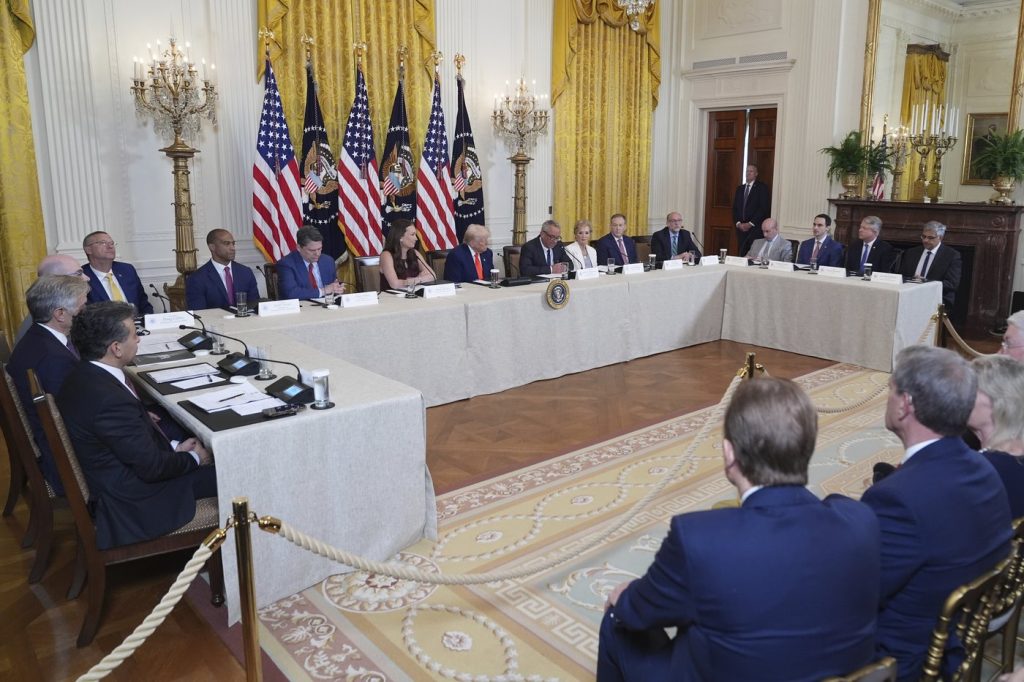PROVIDENCE, R.I. (AP) — Dr. Casey Means, President Donald Trump’s nominee for U.S. surgeon general, has voiced strong criticism regarding the influence of special interests in America’s medical and food systems, arguing that they compromise the health of citizens for profit. Despite her denunciation of the food and pharmaceutical industries for accepting money from corporations, Means herself has engaged in numerous business arrangements that financially benefit her, raising questions about potential conflicts of interest.
The Associated Press investigation revealed that Means, who has established a reputation within the wellness industry, has formed partnerships with various businesses. These include promoting products from companies in which she has a financial stake without always adequately disclosing such affiliations. At 37 years old, Means holds a medical degree from Stanford University but left her residency program in 2018. She claims that her experiences in the healthcare field have led her to seek alternative solutions to what she perceives as systemic metabolic dysfunction resulting from poor nutrition and an excess of ultra-processed foods.
Means co-founded Levels, a subscription-based app aimed at tracking nutrition, sleep, and exercise, which includes insights garnered from blood tests and continuous glucose monitors. The app is priced at $199 annually, alongside a $184 monthly charge for glucose monitoring. The efficacy of these continuous glucose monitors for individuals without diabetes remains a topic of scientific debate, although U.S. Health Secretary Robert F. Kennedy Jr. has advocated for their use as a precursor to the accessibility of certain weight-loss medications.
With over 825,000 followers on Instagram and 200,000 newsletter subscribers, Means has capitalized on her significant audience to endorse various health-related products. She participates in affiliate marketing programs with companies like Amazon, allowing her to earn a percentage of sales generated through her personalized affiliate links. Among the products she has promoted are fitness trackers, supplements, beauty items, and even her book, titled "Good Energy."
Means also created a "My Faves" page on her website featuring affiliate links. This page was taken down after her selection as surgeon general nominee. While some of her partnerships were disclosed, discrepancies have been noted; for instance, a guide she provided on personal care products included numerous affiliate links without proper notification of potential profits from purchases. Further complicating matters, she has publicly invested in Function Health, a company offering a subscription-based lab testing service, yet many of her posts promoting Function Health lacked requisite disclosures of this financial relationship.
Experts contend that the Federal Trade Commission (FTC) mandates influencers to declare any financial ties when endorsing products. Despite this requirement, consumers often remain unaware of the potential monetary incentives behind such endorsements. While Means has made some disclosures in her newsletters, her inconsistencies, particularly in promotional content, raise ethical concerns. The FTC infrequently enforces these regulations, but according to Olivier Sylvain, a Fordham Law School professor, ethical transparency should still be exercised regardless of legal obligations.
Past U.S. surgeons general have faced scrutiny regarding their financial interests, occasionally leading them to reduce holdings or refrain from involvement in matters linked to their business ventures during their tenure. As Means has yet to undergo a Senate confirmation hearing or declare her ethical commitments related to her role, the implications of her prior business engagements remain under examination.
Emily Hund, the author of "The Influencer Industry: The Quest for Authenticity on Social Media," remarked that the increasing prevalence of influencer marketing prompts essential ethical inquiries about how influencers transitioning into governmental roles can manage appearances of conflict. This moment may serve as a critical juncture in evaluating how such dynamics will shape future governance.











